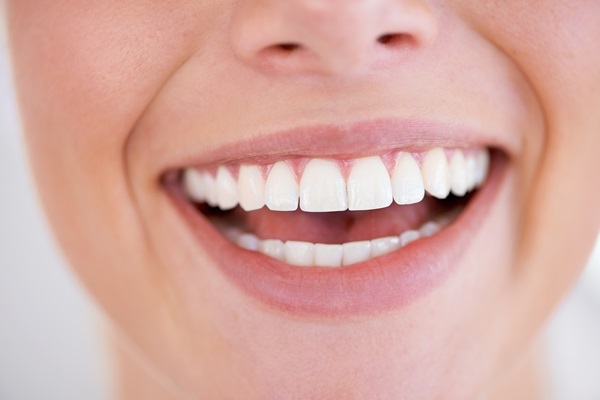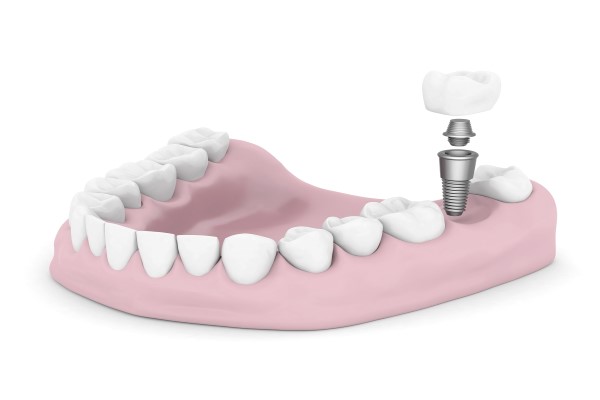7 Things to Know About Sedation Dentistry

Sedation dentistry is a common option for various levels of dental treatment in today's age. It can help with something as simple as teeth cleaning to something more serious, like a tooth extraction. Regardless for the reason, people are curious about sedation dentistry and have several questions.
Here are seven things you need to know about sedation dentistry.
1. Sedation dentistry can ease anxiety
Sedation dentistry is the act of using medication to ease the patient's anxiety and mind during a procedure. Patients with a fear of dental checkups or having to go through any type of dental procedure will benefit from sedation dentistry.
2. There are many levels of sedation
There is a sedation option where the patient remains awake and in a relaxed state, known as minimal sedation. Moderate sedation is when the patient loses their memory of the procedure and it seems like the whole procedure took mere seconds. Deep sedation is a little more intense than moderate sedation in which the patient is asleep but easily woken up if necessary.
Lastly, there is general anesthesia which most know is complete unconsciousness. This method can last longer since the patent will wake up on their own, as the anesthetic wears off.
3. Sedation dentistry can really improve how the patient feels
Sedation dentistry keeps the patient's memories of the dental visit calm and positive. Thus, each visit after becomes less and less stressful. It also reduces apprehension and treatment time.
4. Talking to the dentist is important when deciding on options
The dentist typically knows their patients and whether they have gagging issues or a low pain threshold. However, if you are visiting a new dentist, be sure to communicate these issues to the dentist during the consultation.
5. Not all dentists have the ability to perform all level of sedation
If that is the case, then they would recommend an oral surgeon. If that is not a plausible option, then consider lower levels of sedation. Sedation dentistry is overall on the safe side. It is important to communicate any health issues beforehand for the best outcome. The American Dental Association oversees professional licensing and requires that dentists have specialized training in sedative techniques, medications and medical history analysis and equipment, in order to ensure that everything is cohesive.
6. What the procedure will need
Make sure the dentist has the right tools. It is important to be prepared for the appointment. There must be oxygen available, reversion drugs and a way for them to regulate the patient's vitals. This is only in cases of more advanced sedation and procedures.
7. Have someone who can give you a ride home
Since certain levels of sedation will put the patent to sleep, it is wise for the patient to set up some form of a ride home. Whether it is an Uber driver or a friend, having someone else drive is important for the patient's safety.
If a patient considers themselves anxious or if the dentist recommended the concept based on behavior in the office, the option of looking into sedation dentistry may be beneficial.
Request an appointment in our Santa Cruz dentist office here: https://www.kevinjdailydds.com.
Recent Posts
Many people have concerns about local anesthesia, and for a good reason, it's not something that you use in your daily life. It is especially a concern for those who suffer from mild to severe dental anxiety. Local anesthesia is a tool that dentists employ during various dental procedures.The first thing that people might want…
Dental anxiety is fear that is almost as prevalent as the fear of snakes or the fear of heights. About four percent of American adults face the problem. The fear is so strong that there are people who avoid going to the dentist at all costs. But doing so can be very harmful to their…
Dental anxiety can stop people from receiving the dental care they need, only making a situation worse.People who have dental anxiety will avoid visiting the dentist and increase the risk of infection. We can accommodate your needs to help deal with dental anxiety and provide you the necessary treatment.Dental AnxietyAt Kevin J Daily DDS in…
Staring at the pamphlet titled “Do Not Eat” with images of hard candies, potato chips, soda, pretzels, popcorn, chewy candy and more, 10-year-old Daniel sighs in defeat. Daniel now wears braces and must say goodbye to all the food he has grown to love in the first ten years of his life. Daniel’s mother hates…


